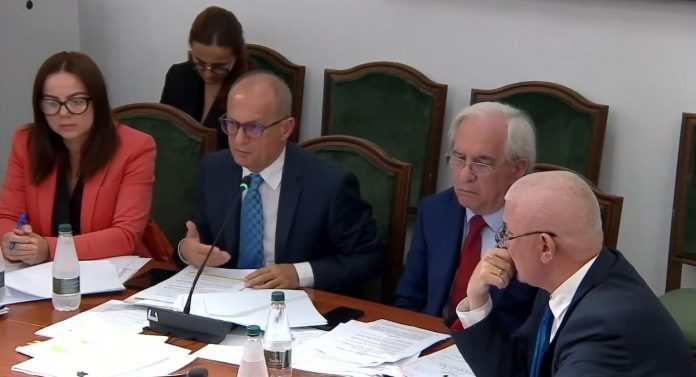Albania’s proposed science law sparks debate with academic community

The Albanian government’s proposed bill on science and scientific research has entered parliamentary discussions, sparking debates between MPs and academic community.
Why is it important: The bill aims to introduce a new legal framework for scientific research and expand the entities eligible to conduct it. However, it has raised concerns, particularly over its potential impact on academic freedom and university autonomy. The creation of the National Science Council, composed in part of government officials, has been a key point of contention.
Context: During a parliamentary hearing on education, the head of the Conference of Rectors and Rector of the University of Tirana, Artan Hoxha, criticized the proposed changes, stating that some of the latest amendments were not consulted with academic institutions. Hoxha highlighted several discrepancies between the first and second drafts, which he argued could undermine the freedom of research and university autonomy.
One of the most debated points is the establishment of a 14-member National Science Council, with five government ministers as members and the Prime Minister leading the body. While the Council’s role is described as advisory, opponents are concerned about the government’s influence over research priorities. Critics argue that a government-dominated council could compromise the independence of scientific research. Supporters, however, believe the council shows the government’s commitment to advancing science and its integration into various sectors of Albanian life.
The Conference of Rectors has submitted a 24-page document requesting revisions to the bill. Although they support the idea of a law on science, they insist it must align with Albania’s Constitution, EU directives, and existing higher education laws. They argue that the current version could lead to politically directed research, damaging the functionality of higher education.
Statements from key figures:
“We are very concerned about this bill. It does not meet the necessary standards and could deeply harm higher education,” said Rector Hoxha, adding that while the rectors are open to passing a science law, it should be harmonized with existing legislation on higher education.
On the other hand, Evis Kushi, head of the parliamentary committee and former Minister of Education, reassured that Parliament is willing to address the concerns raised by the academic community and consult them on the final draft.
Current state of research funding: Scientific research in Albania currently receives a budget of €5.5 million, accounting for just 0.08% of the country’s GDP, highlighting the limited financial support for the sector.


